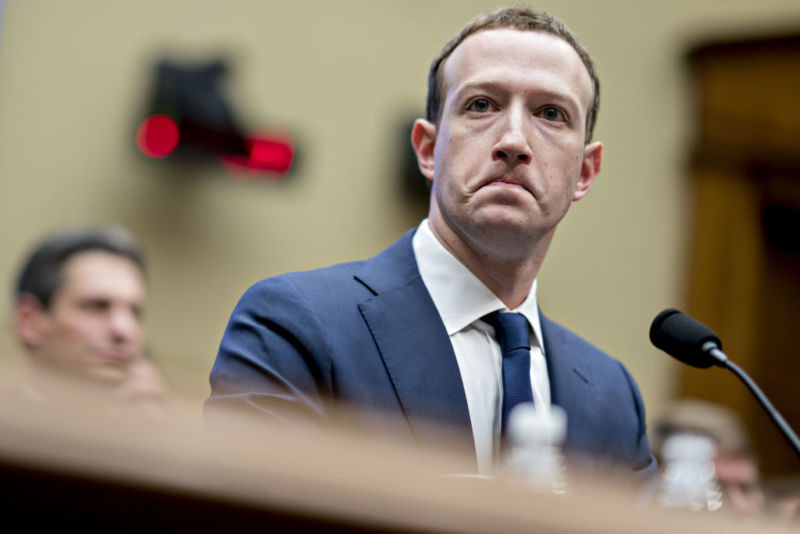Why the 2010s were the Facebook Decade

Enlarge / Facebook CEO Mark Zuckerberg testifying before Congress in April 2018. It wasn't his only appearance in DC this decade. (credit: Bloomberg | Getty Images)
By the end of 2009, Facebook-under the control of its then 25-year-old CEO, Mark Zuckerberg-was clearly on the rise. It more than doubled its subscriber base during the year, from 150 million monthly active users in January to 350 million in December. That year it also debuted several key features, including the "like" button and the ability to @-tag your friends in posts and comments. The once-novel platform, not just for kids anymore, was rapidly becoming mainstream.
Here at the end of 2019, Facebook-under the control of its now 35-year-old CEO, Mark Zuckerberg-boasts 2.45 billion monthly active users. That's a smidge under one-third of the entire human population of Earth, and the number is still going up every quarter (albeit more slowly than it used to). This year it has also debuted several key features, mostly around ideas like "preventing bad nation-state actors from hijacking democratic elections in other countries."
Love it or hate it, then, Facebook is in arguably a major facet of life not just in the United States but worldwide as we head into the next roaring '20s. But how on Earth did one social network, out of the many that launched and faded in the 2000s, end up taking over the world?
Read 43 remaining paragraphs | Comments